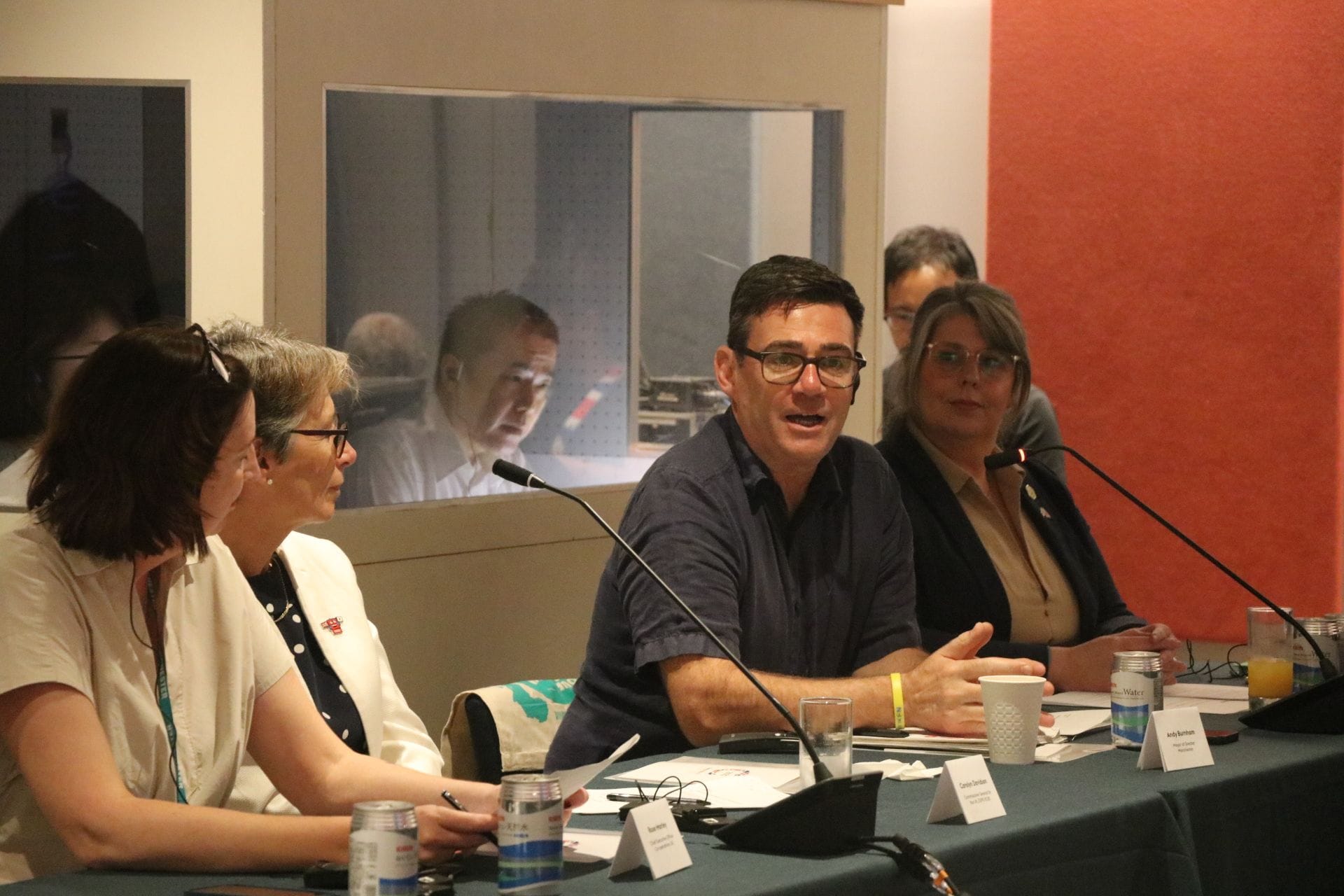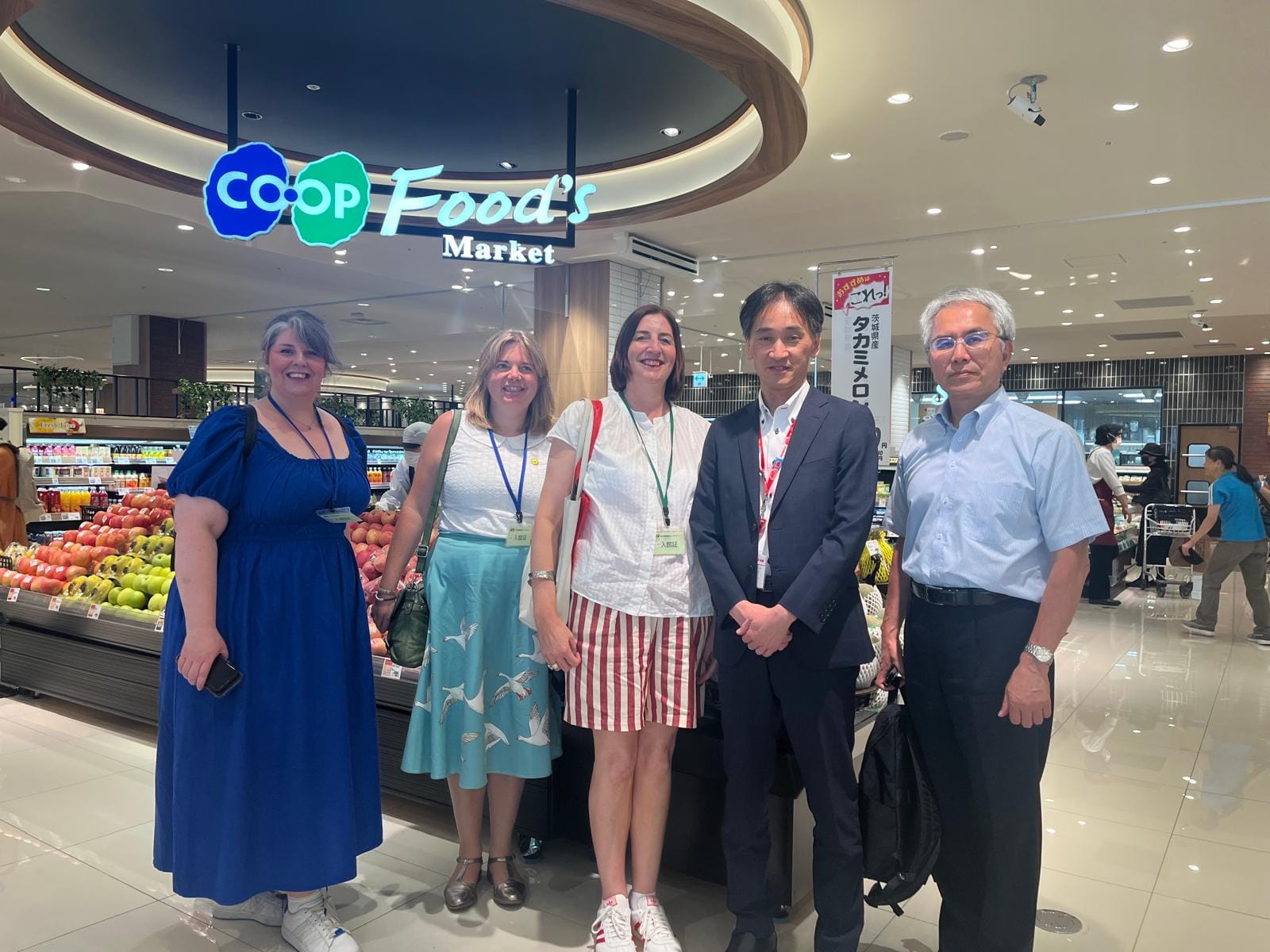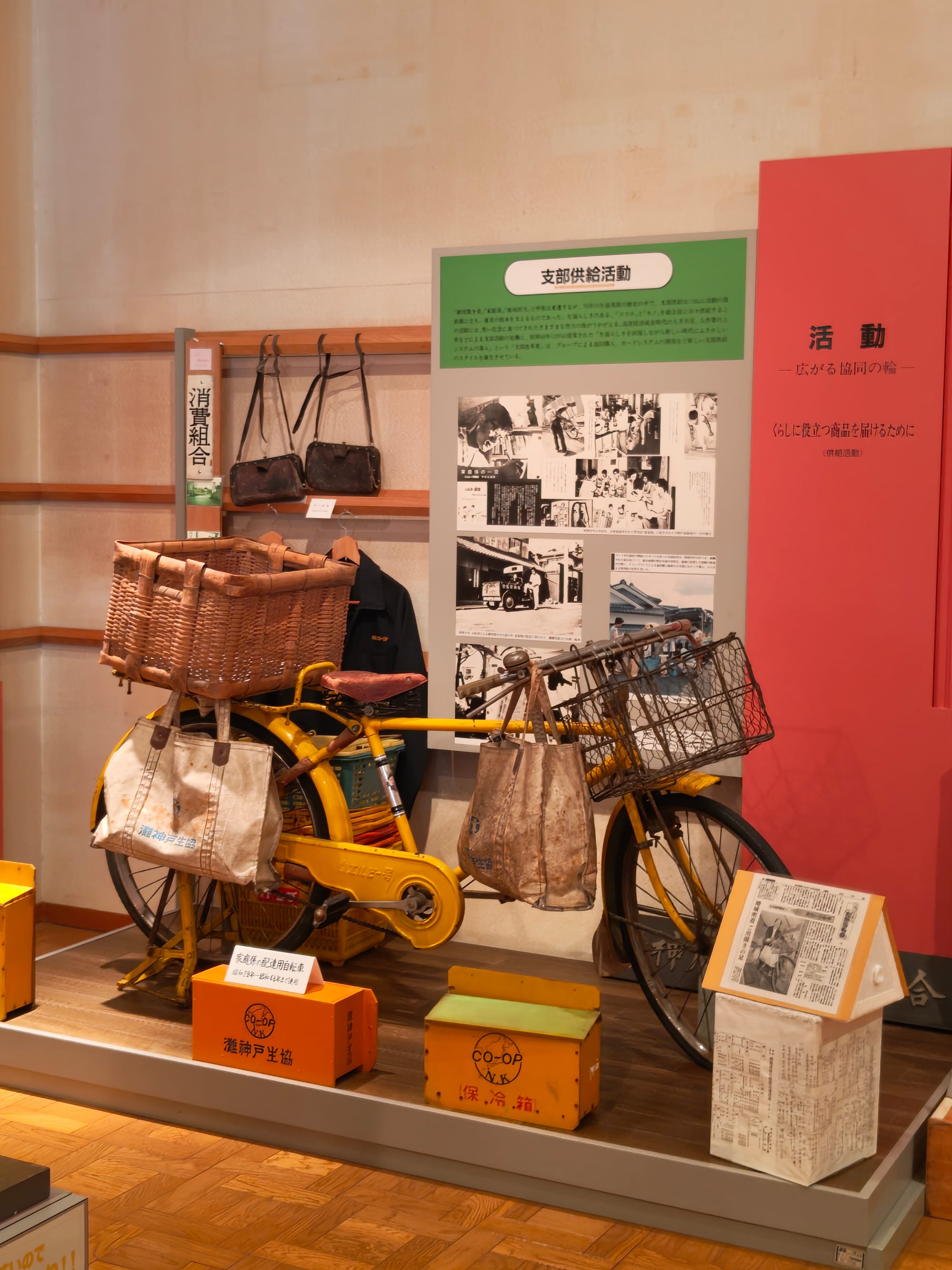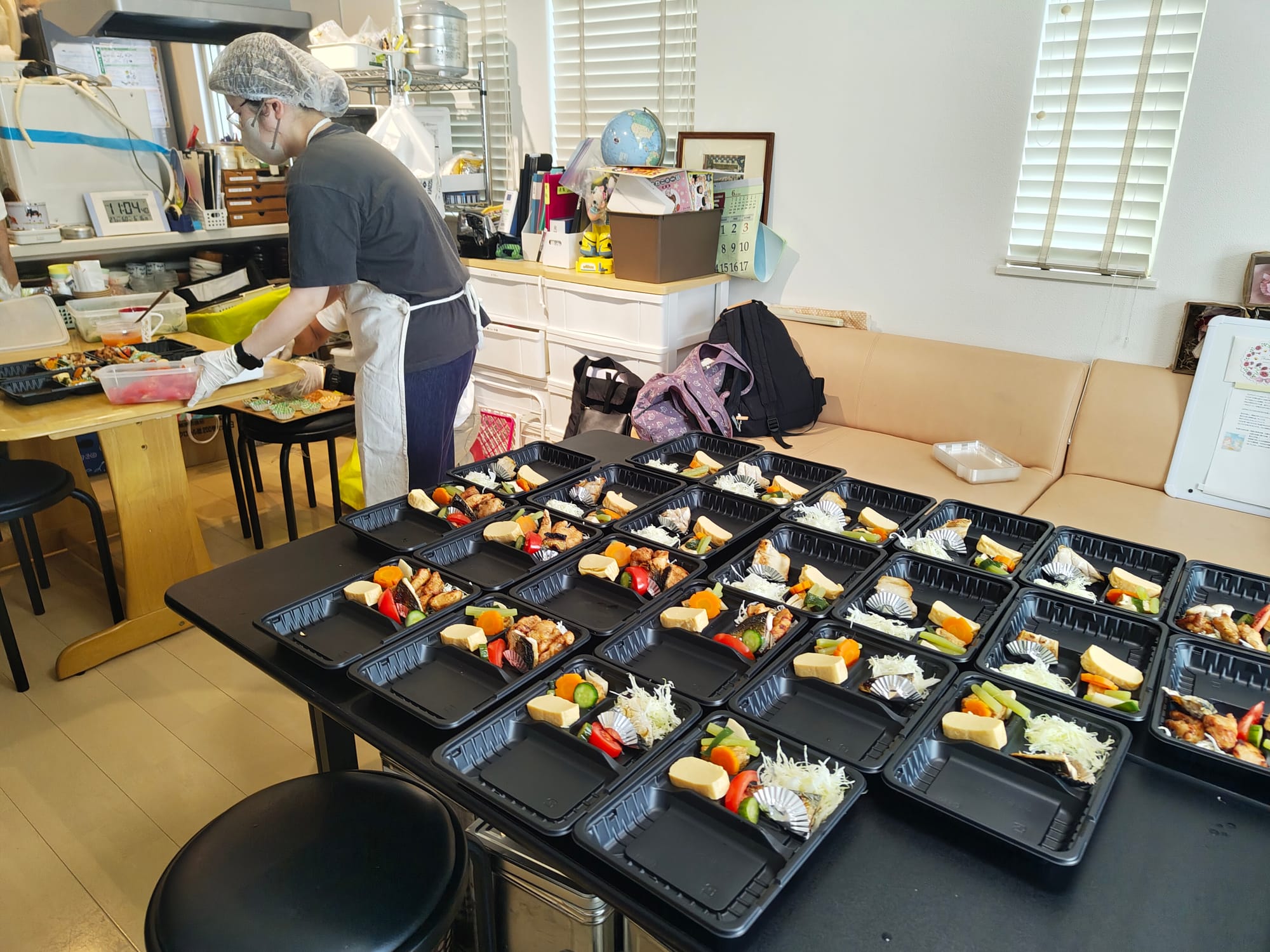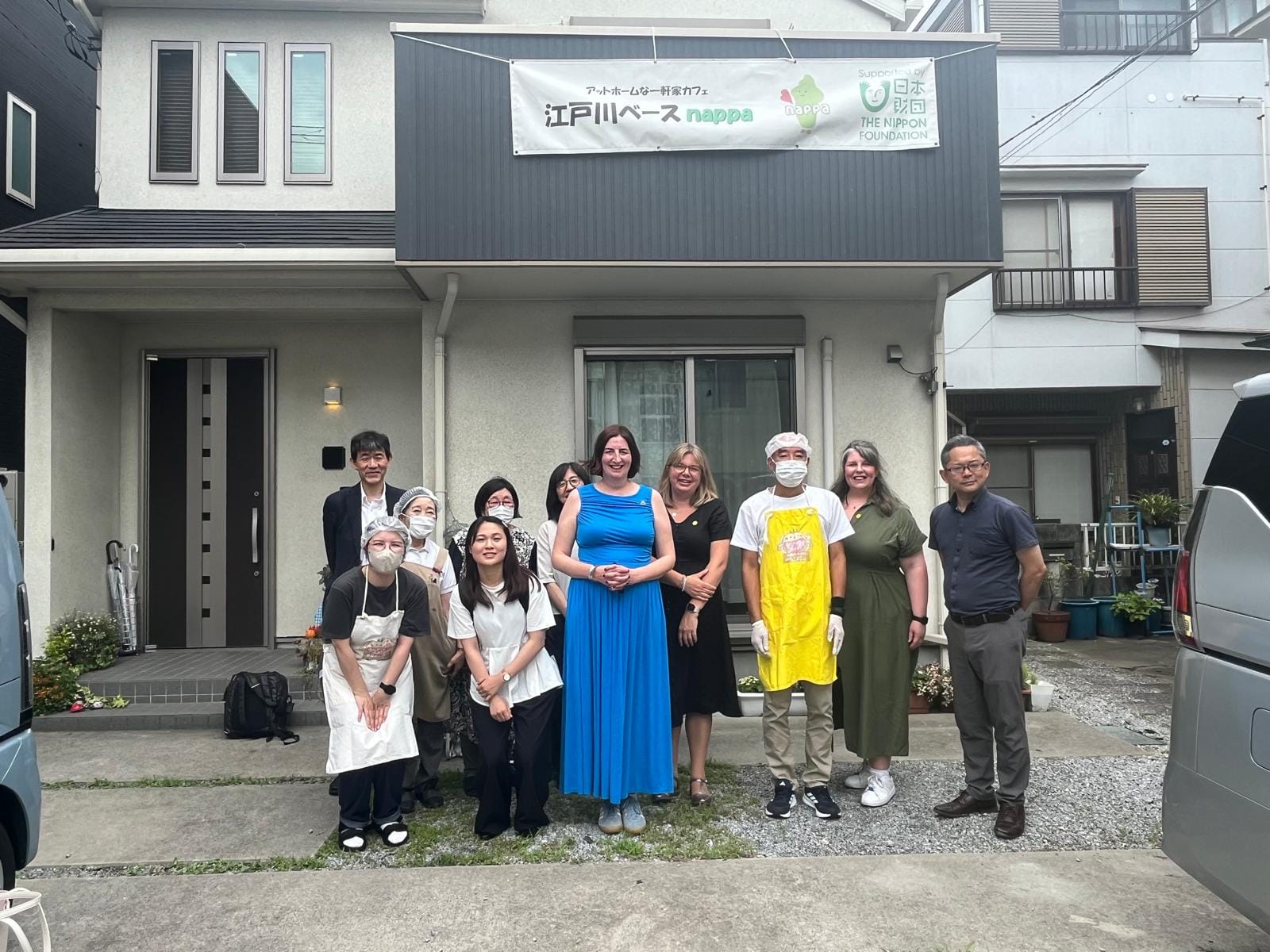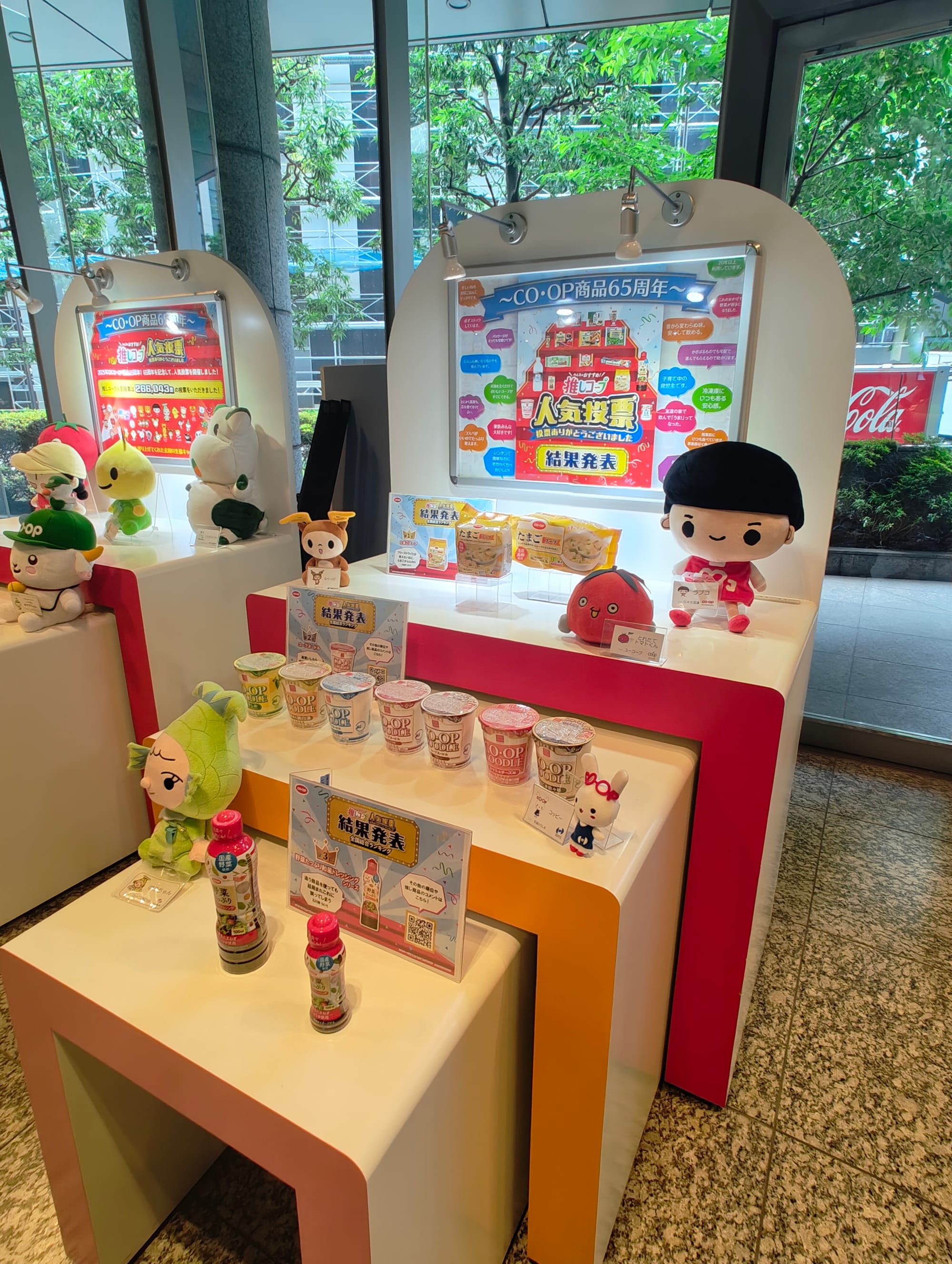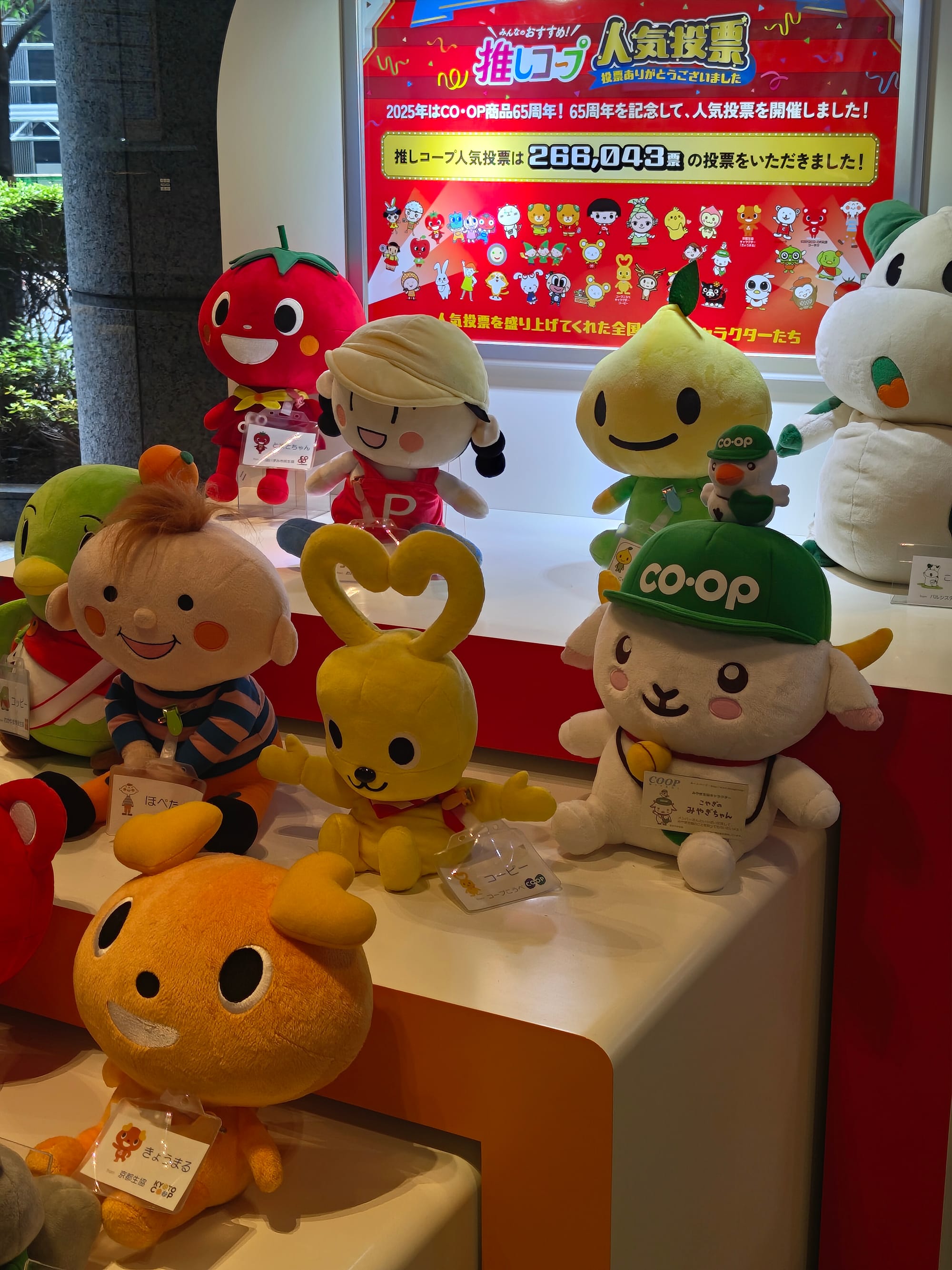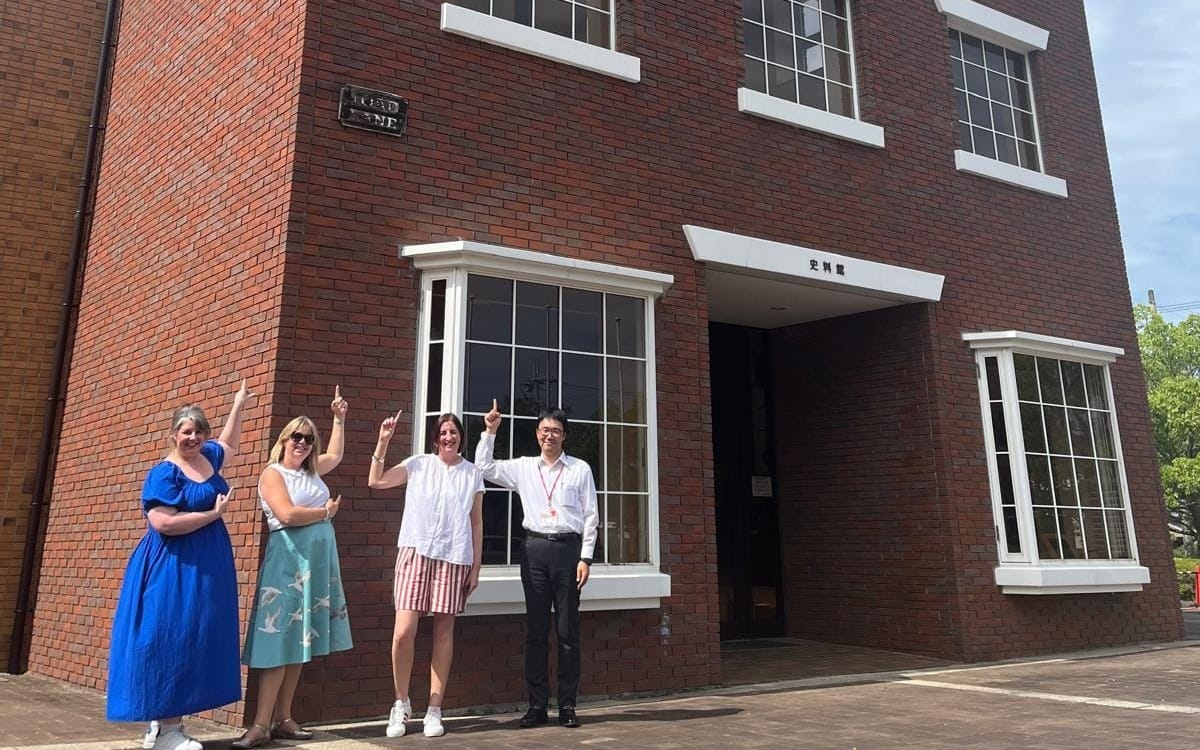
The land of rising co-operation
Date Published: 26/06/2025 | Blog category: Other
In June, Co-operatives UK and Central Co-op were invited to be part of the Greater Manchester trade mission to Japan, with our objective being to explore, learn and collaborate with our co-operative counterparts in Tokyo and Osaka.
With an action packed itinerary we set off, leaving Manchester excited for the week ahead. Upon arriving in Tokyo the following day, what became immediately obvious was the words “thank you for your co-operation” on nearly every sign and in every announcement at train stations. It was more than coincidental, as the days progressed we saw it more and more – in queues at checkouts in stores, on entrances to gardens and shrines.
It's more than a simple sign off or platitude, it’s a genuine expression of Japanese culture – where everyone recognises they play a part in making things work for all, that an act of co-operation has a chain reaction that makes the system flow so efficiently. The mutual benefit we’ve come to associate in co-operative trade, is a behaviour in everyday life in Japan dating back generations.
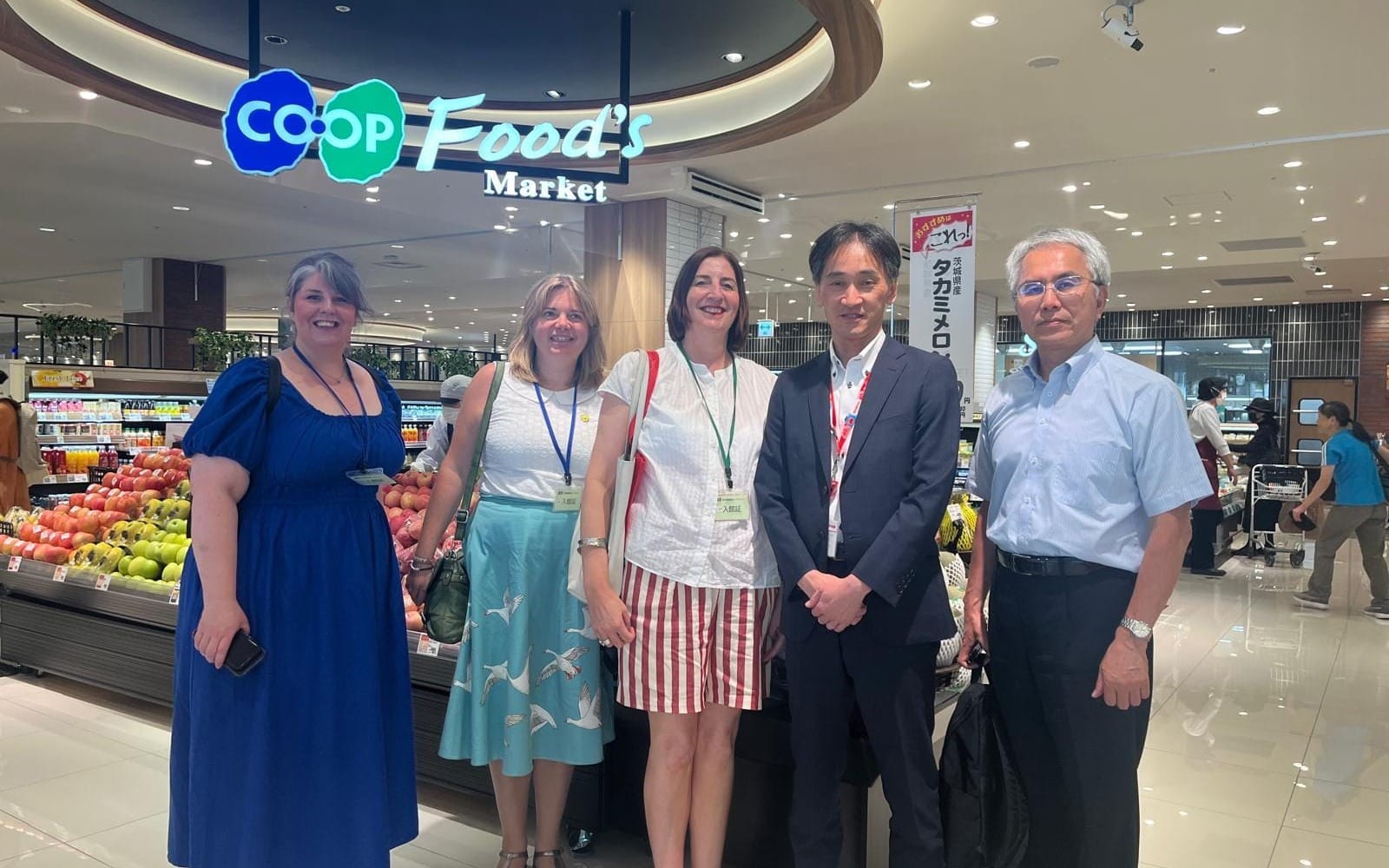
Japan’s co-operative movement is remarkable. With 45,000 registered co-ops in the country, and over 105 million Members, employing over half a million people – adding a huge ¥5.6 trillion (£28.3 billion) to the Japanese economy – it’s an incredibly impressive movement spanning many different types of co-ops. According to the JCA (Japanese Co-operative Alliance), worker co-ops are the fastest growing, with even more opportunity to expand.
With this in mind, we began our trip by visiting 3 worker co-ops in Tokyo, all operating within the social care sector. Osamu Nakano the Board Member and Secretary General of Japan Workers’ Co-operative Union (JWCU) shared with us that Japan’s federation of worker co-ops consists of 45 Member organizations with 17,000 workers – and a turnover of ¥37 billion (£187m). And the Central Workers’ Co-operative (CWC) is the biggest worker co-op in Japan since 1987, with 10,000 workers, 8,000 worker-Members (of whom 70% are women), with a turnover of ¥26 billion (£131m) from their 400 business centres.
What became immediately apparent was the role worker co-ops play in providing fair, equitable employment for otherwise marginalized members of society. Nakano said, “In Japan 2.3% of a company’s workforce is required to be disabled, which is a very low figure compared to other countries. But most businesses don’t comply and instead pay the penalty. JWCU employ people who would otherwise not find jobs, it’s very inclusive.” This includes people with disabilities, young people requiring additional support as well as people with previous criminal convictions or having experienced homelessness.
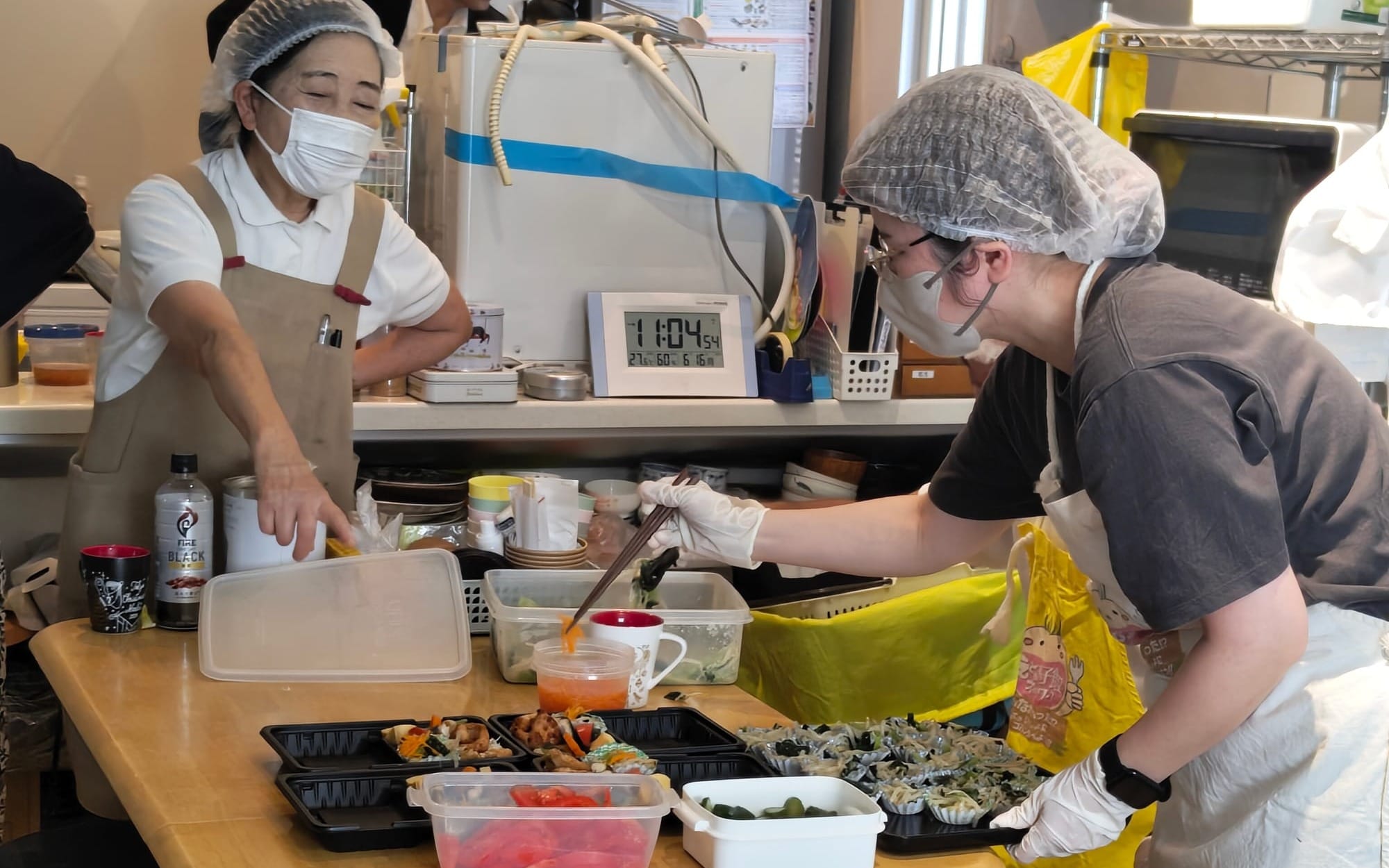
We were introduced to the member-owners of Edogawabase Nappa, a social care co-op supporting vulnerable young people, which had grown from a phone helpline for abuse cases, and 1-1 mentoring programme to the premises we were shown around. A safe and welcoming space for children to play and learn. The co-op secured local government contracts to support their community and are actively involved with other organisations locally to support families with advisory services, early parenting classes and school support services.
Shiori, one of the young member-owners, who is also the Edogawabase Nappa Deputy Secretary, expressed that one of the reasons she was drawn to work in a co-op was the value placed on her voice and her opinion being heard. She shared that in typical companies, you’d hear that you are too young so you don’t have a voice.
This struck a chord with me – for young people to proactively choose the co-op path for their future, knowing that their voice, their opinions counted. To stray from the societal norm of graduating and joining a company and instead enter into a worker co-op as an owner, and to thrive in doing so. How can we share this message here in the UK and encourage more young people to step up, be bold and brave to create solutions to support people who might otherwise fall through the system’s gaps?
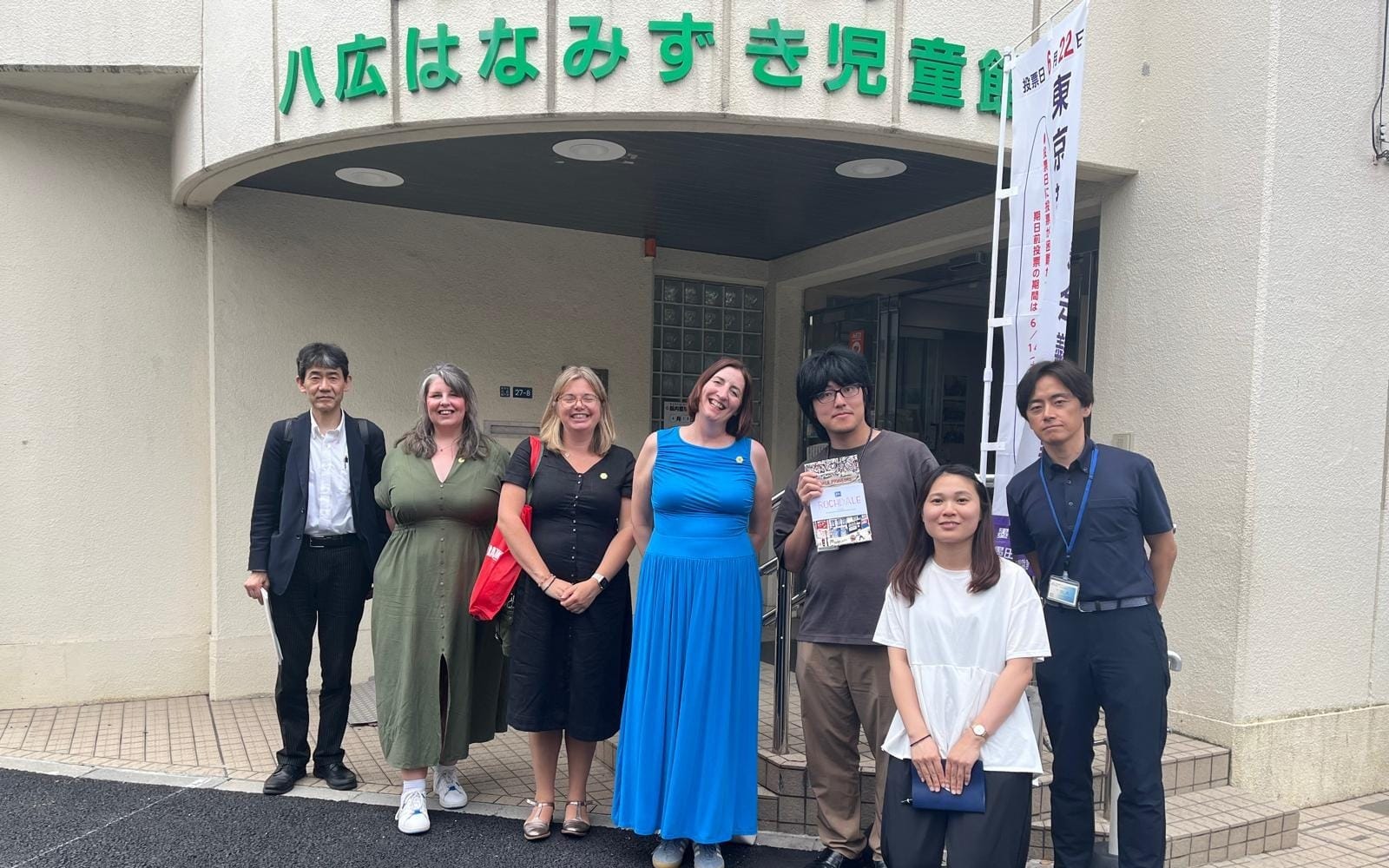
The warmth was felt as we toured the building, seeing the volunteers on shift assembling bento boxes for the local community – a Japanese take on “meals on wheels” – where 37 subsidised (or free) boxes of freshly prepared food would be delivered by the team to people in need nearby. The volunteers greeted us with a loud welcome cheer in English and were so thrilled to share their contributions with us – you could see the joy and pride they experienced by contributing this way. The team continued to say that many people who had previously been recipients of their services are now volunteering as their way of giving back.
It was an incredibly wholesome and humbling experience to see the virtuous circle of co-operation in action.
Our tour continued as we met Ishida-san, at an elderly care co-op, who provide day and night care for people with dementia.
In Japan, the government state that elderly people should stay in their homes if possible rather than in care facilities, but this worker co-op setup to provide care for people whose families need respite or community connection to tackle the isolation this debilitating illness causes. There are 25 member-owners of this co-op, 13 who worked in the centre itself, and a further 12 offering in-home support in the community.
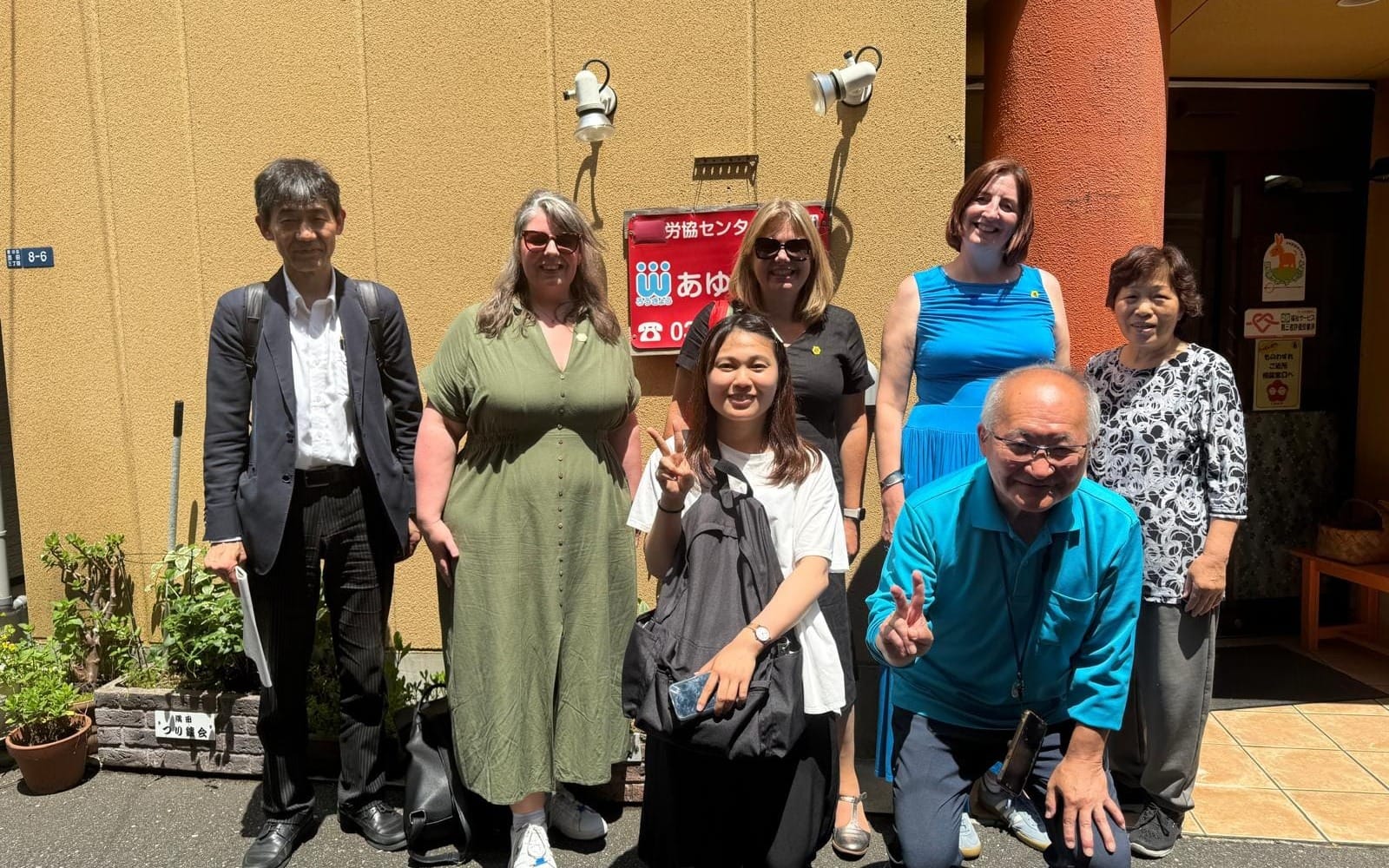
Care facilities can often be sombre and unsettling places, but the community room was filled with laughter. Paper craft adorned the walls, with intricate origami crafts catching my eye around the room.
Ishida-san shared the challenges faced in funding for social care work, where these important roles and services in both the UK and Japan are low paid.
We also met with a worker co-op supporting a broad range of age groups with social care services. From maternity classes to after school sports and a library stocked with a plethora of popular manga titles. This was a place for connection: the embodiment of concern for the community.
During the course of the week we continued to meet with different co-ops, and a last minute meeting with Japan Rail. Japan are world renowned for their efficient rail network, famously receiving worldwide news coverage following a train departing 25 seconds early in 2018 requiring a public apology! We wanted to understand the co-operation behind the scenes, coming from a country where rail travel has become unreliable and cost prohibitive for most. What we learned is there’s a complex system powering this, with 7 private companies coming together to provide the service – but all governed by a policy to offer a seamless customer experience, similar to a secondary co-op operating model.
It was riveting to hear all about the jingles featured at every station and the local flair that’s applied to every melody. (If you’ve ever visited Japan, you’ll know the very musical nature of train travel.)
But despite the rail network being privatised, the spirit of cooperation remains strong. Consistent ticket pricing across the network, collaboration between the different companies and the empowerment of local station teams to engage their local communities.
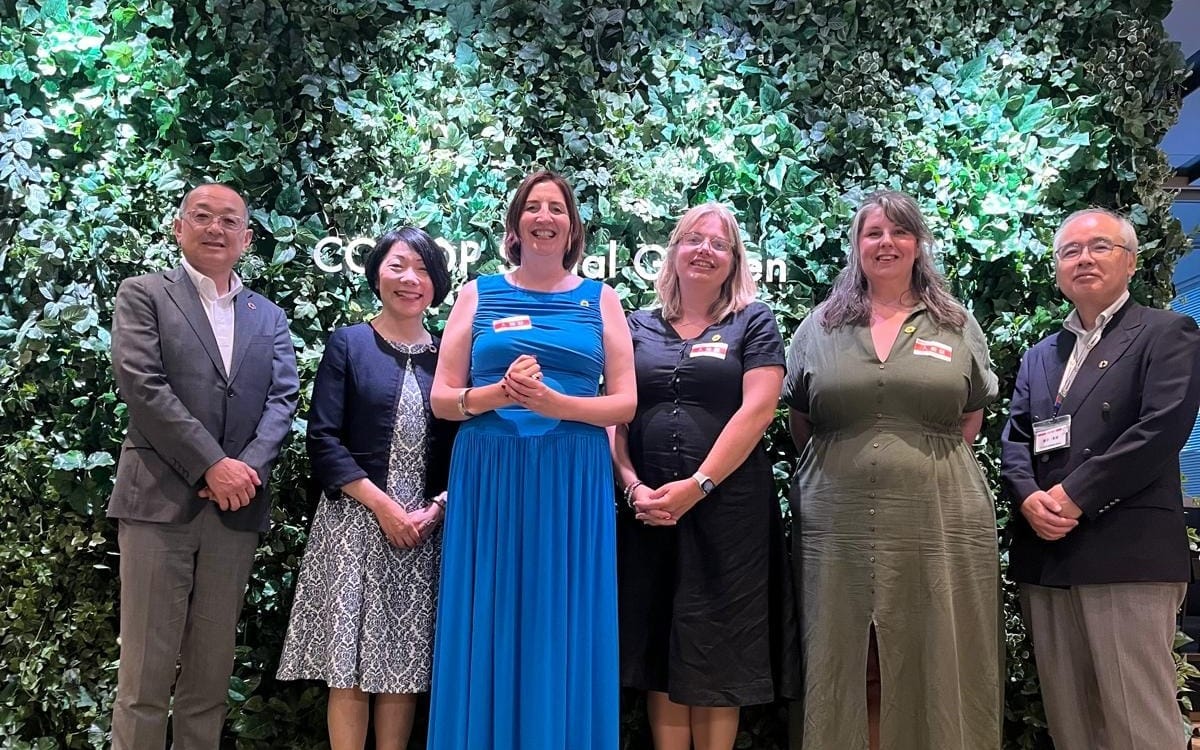
Back to bona fide co-ops, at JCA and JCCU (Japan Consumer Co-operative Union) we learned that most of Japan’s co-op movement is made up of SMEs, 38,000 of them!
1,400 fishing and agriculture co-ops, 600 consumer co-ops and 150 worker co-ops – though worker co-ops were the fasting growing following a new law brought in just two years earlier, making it easier to form a worker co-op.
In Japan, consumer co-ops can only trade with Members exclusively. This isn’t a choice, it’s the law. And something we’ve wrestled with in the UK, with many of our Members suggesting this as a way of operating. But our Japanese colleagues shared that this is a real pain point for them and they’ll be lobbying to try to change this moving forward.
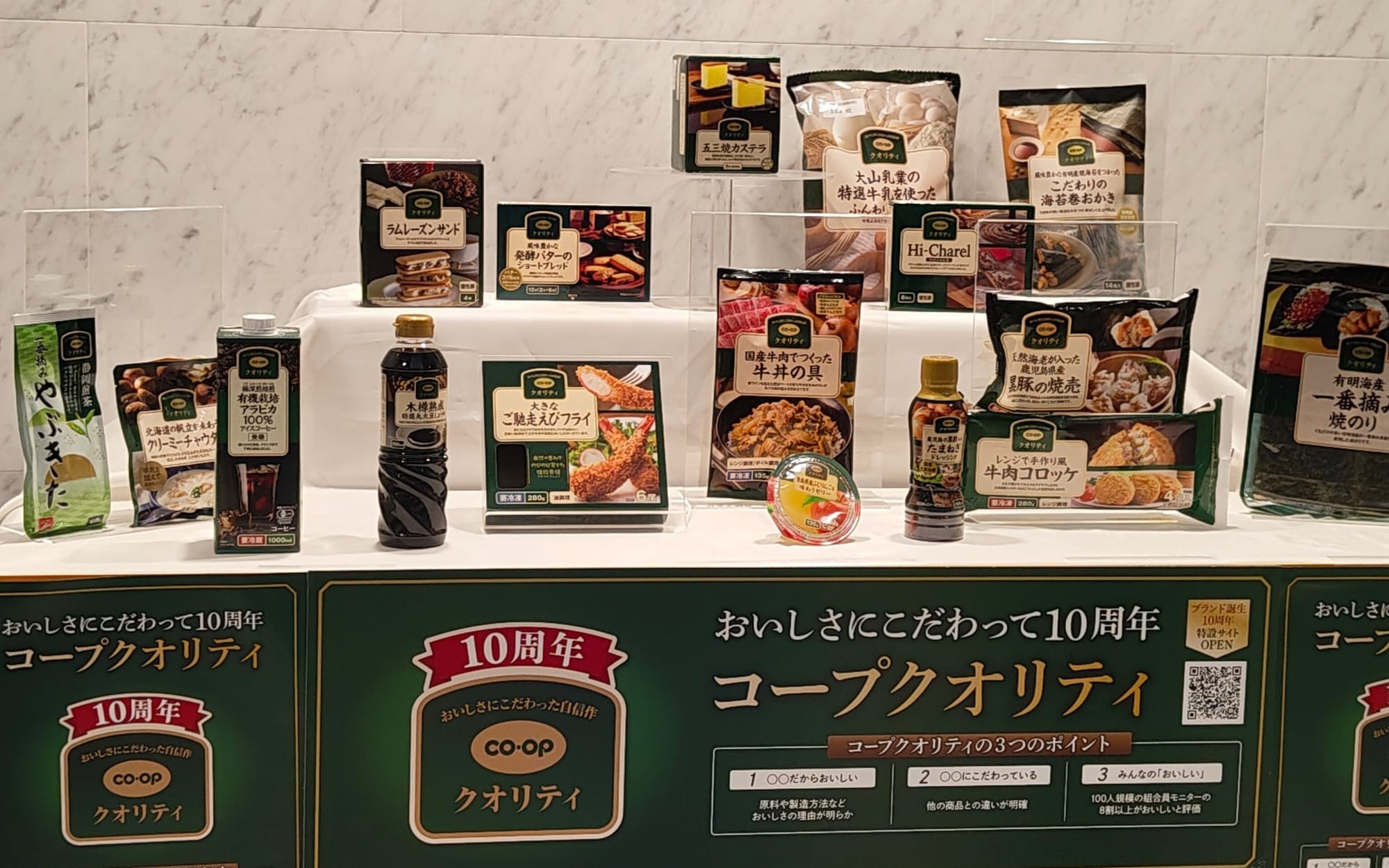
Japan has an ageing population. People are living longer, but the birth rate has significantly reduced in recent years. Making the universal challenge we face in co-ops of attracting young people even more difficult, when the audience is drastically reduced. What we could bring to the table in these meetings was the learnings we have and initiatives we’ve implemented in the UK that have turned the table when it comes to engaging young people. I shared Central’s significant reduction in average Membership age (down nearly 20 years in the last 3 years), thanks to the introduction of a mobile app and focus on relevant offers like the lunchtime meal deal. Whilst perhaps obvious to us, we see these loyalty tropes everywhere in the UK retail space, this is relatively unheard of in Japan – so it was great to be able to offer insight and ideas to help tackle this challenge.
Our tour of Japan continued with a visit to Kobe, visiting consumer co-operative Co-op Kobe. Their online shopping business has grown +10% since the COVID-19 pandemic, and across the consumer co-ops in Japan via JCCU, online shopping represents a higher proportion of their trade than their stores. One discernible difference though is where we have become accustomed to same day, rapid delivery service models, in Japan, Members order a week ahead – which helps to keep waste figures low. The notion of our UK quick commerce operation was unheard of – a sign of how our shopping behaviours vary drastically between the two nations.
The trip to Kobe culminated in a trip to Toad Lane…yes, you read that right! To commemorate the Rochdale pioneers, Co-op Kobe built a replica of the infamous Toad Lane, birthplace to modern co-operation as we know it. The building housed a museum, outlining the history of the Japanese co-operative movement. There was also a memorial to those who died as a result of the Kobe earthquake in 1995, with harrowing photography documenting the disaster’s impact, including the destruction of the former headquarters of Kobe co-operative. The team told us about how co-ops across the region came together to support the recovery – something which today forms the basis of the Fund for International Co-operative Development – a great example of how collaboration and co-operation supports communities at the toughest times.
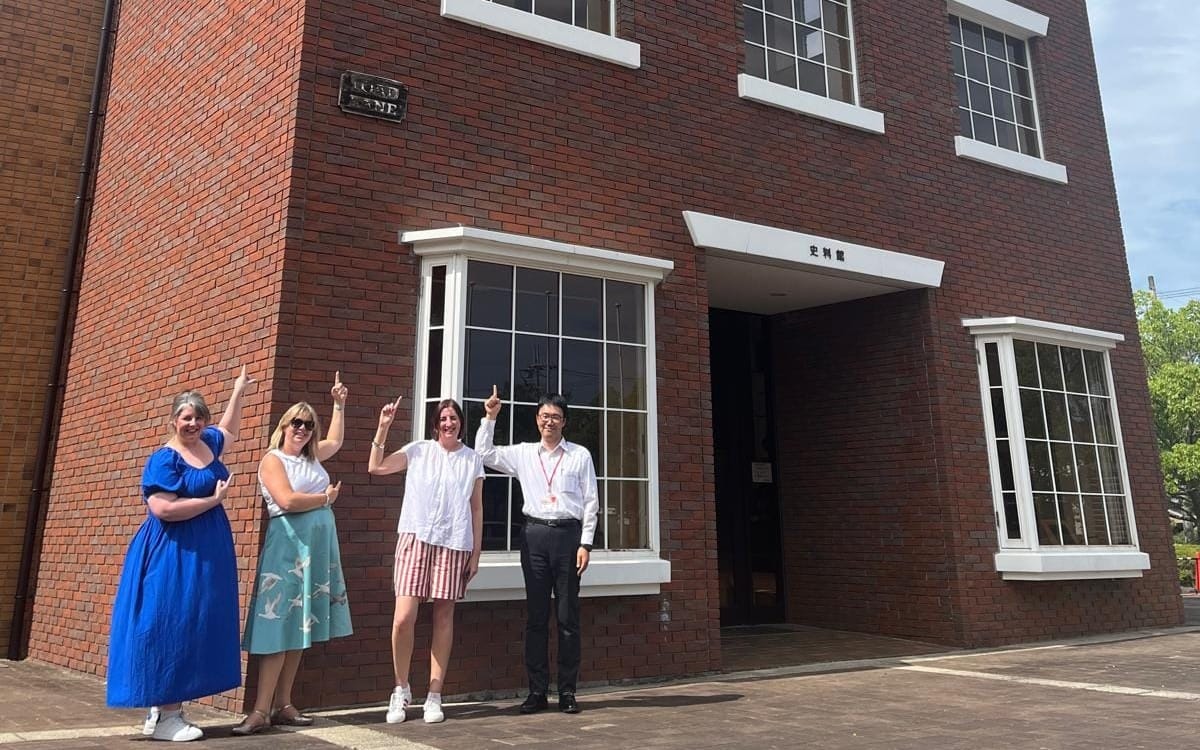
Whilst the inherent spirit of co-operation and mutual respect is ever present, there’s a glaring issue. Despite 45,000 co-operative businesses in Japan, making significant contributions to the economy and the UN Sustainable Development Goals, much like in the UK – co-ops remain the unsung heroes. At a reception to celebrate the trade mission hosted at the British Ambassador’s Residency in Tokyo, we networked with local officials and businesspeople. One common theme emerged – people don’t get co-ops. We’re seen as fluffy, the do-gooders, not viable, successful businesses. When Chamber of Commerce Officials are completely unaware of co-op businesses you know there’s a work to be done!
And, much like here in the UK, we seem to resign ourselves to the fact we’re misunderstood. And are all too happy to explain over and over again who we are, our history and heritage, and what we all stand for, united by values and principles the world over. When will we be taken seriously?!
To complete the week, Co-operatives UK hosted a roundtable at the UK Pavilion at Osaka World Expo. Speakers included the United Nations, Commissioner General for the UK, ICA Board Members, Andy Burnham Mayor of Greater Manchester, Bev Craig Leader of Manchester City Council, and representatives from Japanese co-operatives. 90 minutes of showcasing some of the best co-operative solutions to today’s problems and why co-operatives can, and will, build a better world. You can watch the roundtable here.
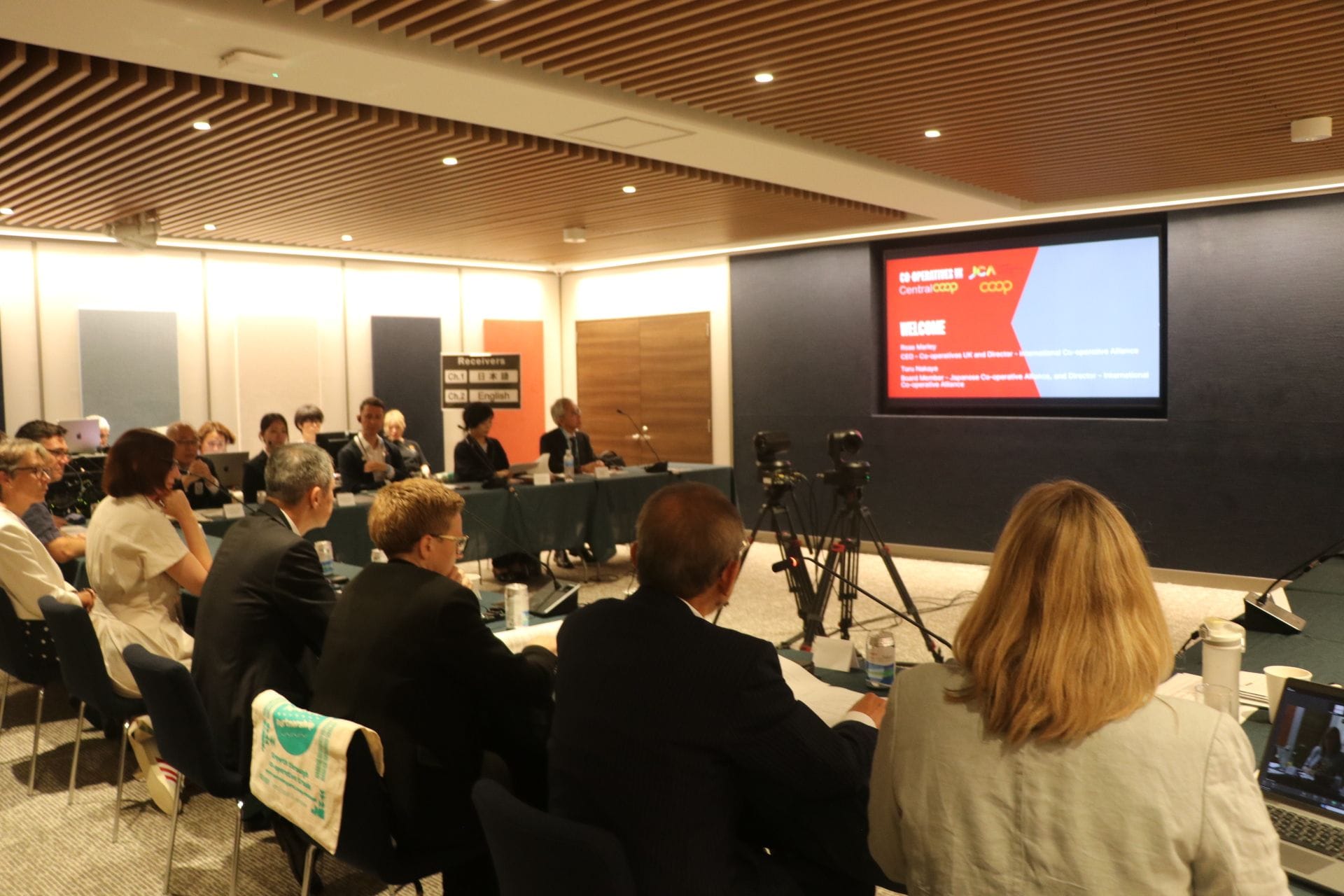
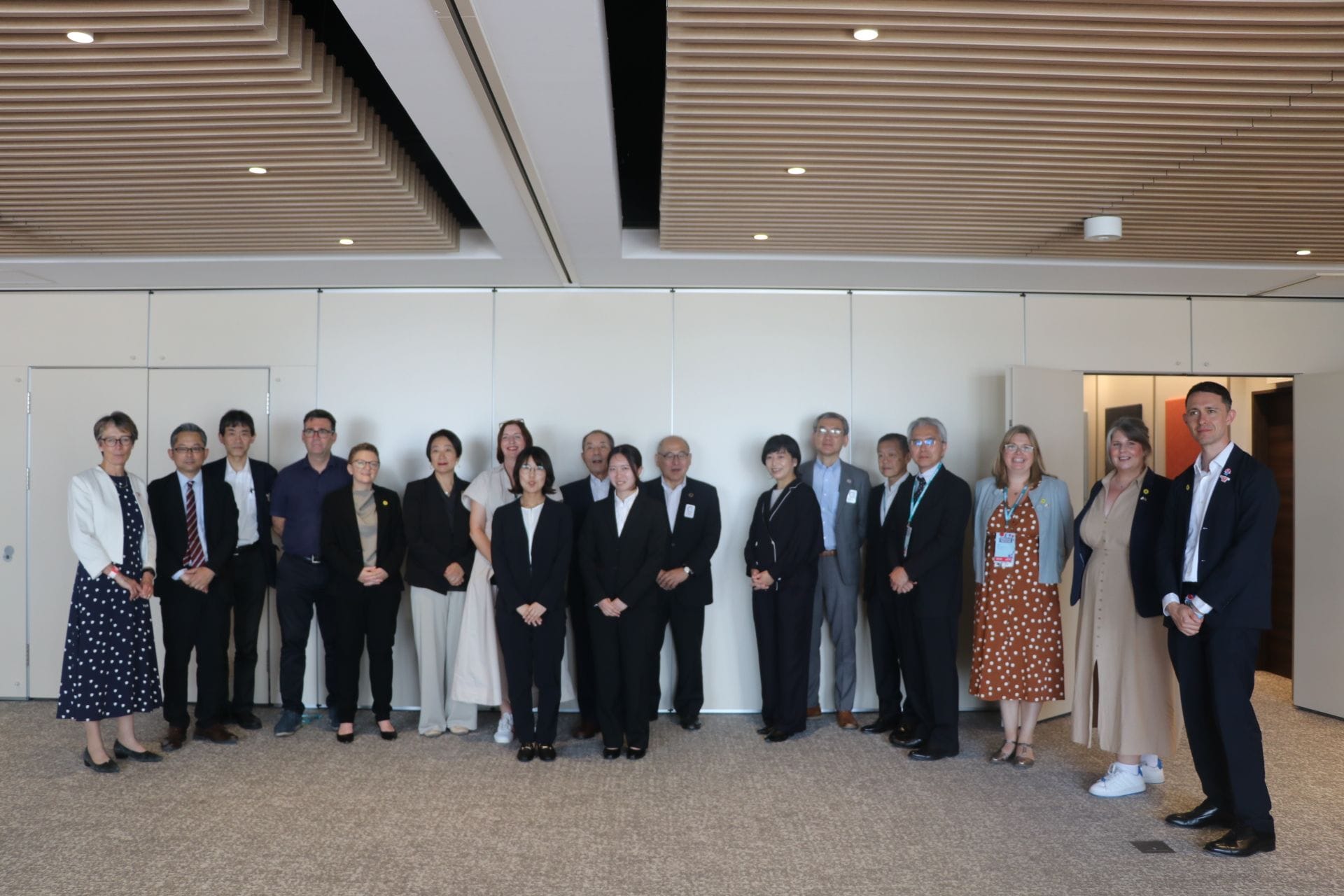
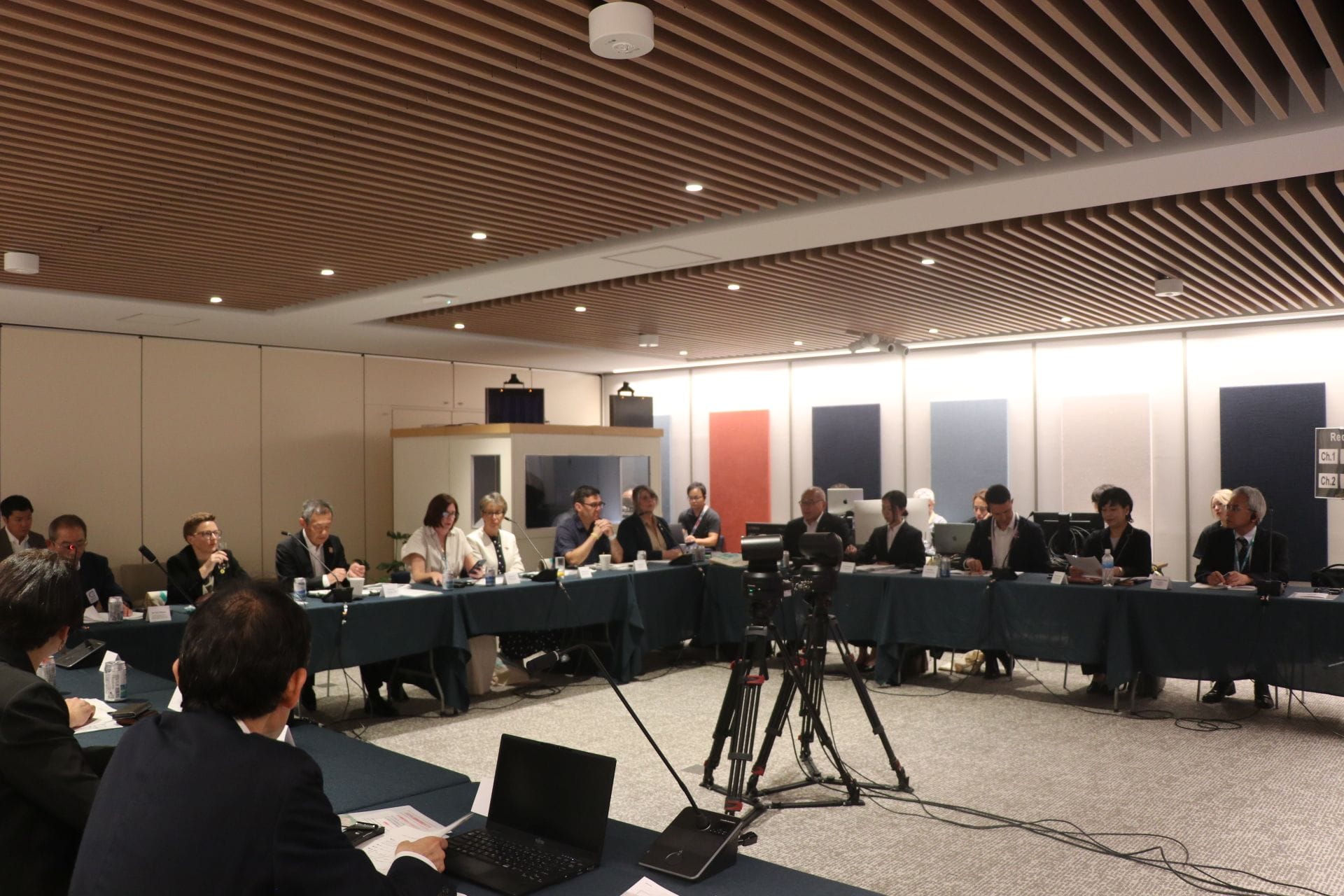
At the end of the roundtable discussion, Mayor Andy Burnham announced his intent to build co-operative development into the twin city signing between Greater Manchester and ‘Manchester of the East’, Osaka. With Co-op Congress taking place at the beginning of July, Mayor Burnham requested a follow up consultation, or what they would call in Kobe – a Japanese “Wish Poem” to be held at congress to capture ideas and aspirations on co-operative solutions connecting the two city region communities to leave a legacy.
Thought provoking and inspiring, it was a fantastic way to complete a productive week. Though I’m left with a burning question…. what next?
We know the work is being done. We know there are unsung heroes across the movement worldwide. We know the spirit of co-operation is strong. But it feels to me that we’re operating in an echo chamber. No one on the outside looking in to want a piece of the action, no one knocking on our doors to hear about a better way of doing business. In the year designated at the International Year of Co-operatives by the United Nations, I hope we can use this opportunity to stand out from the crowd, to make meaningful strides towards raising awareness and education of what we’re so proud of, co-operating to build a better world.
